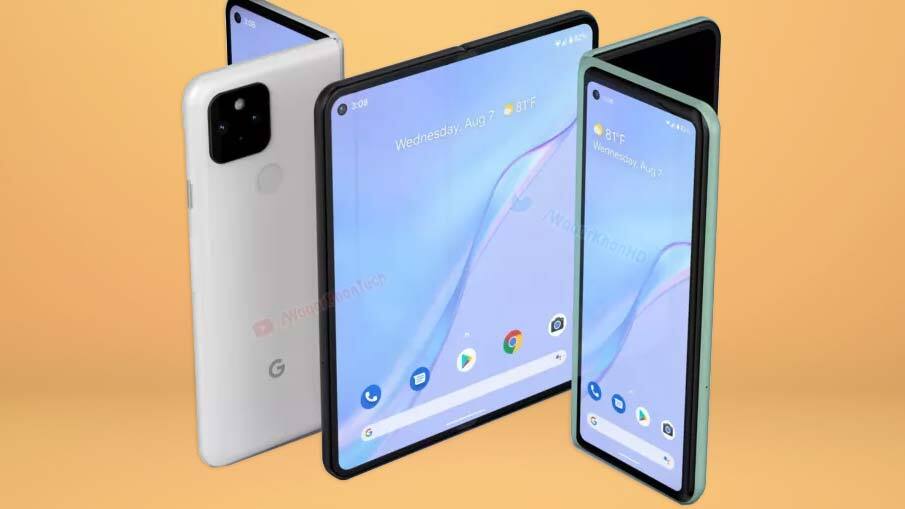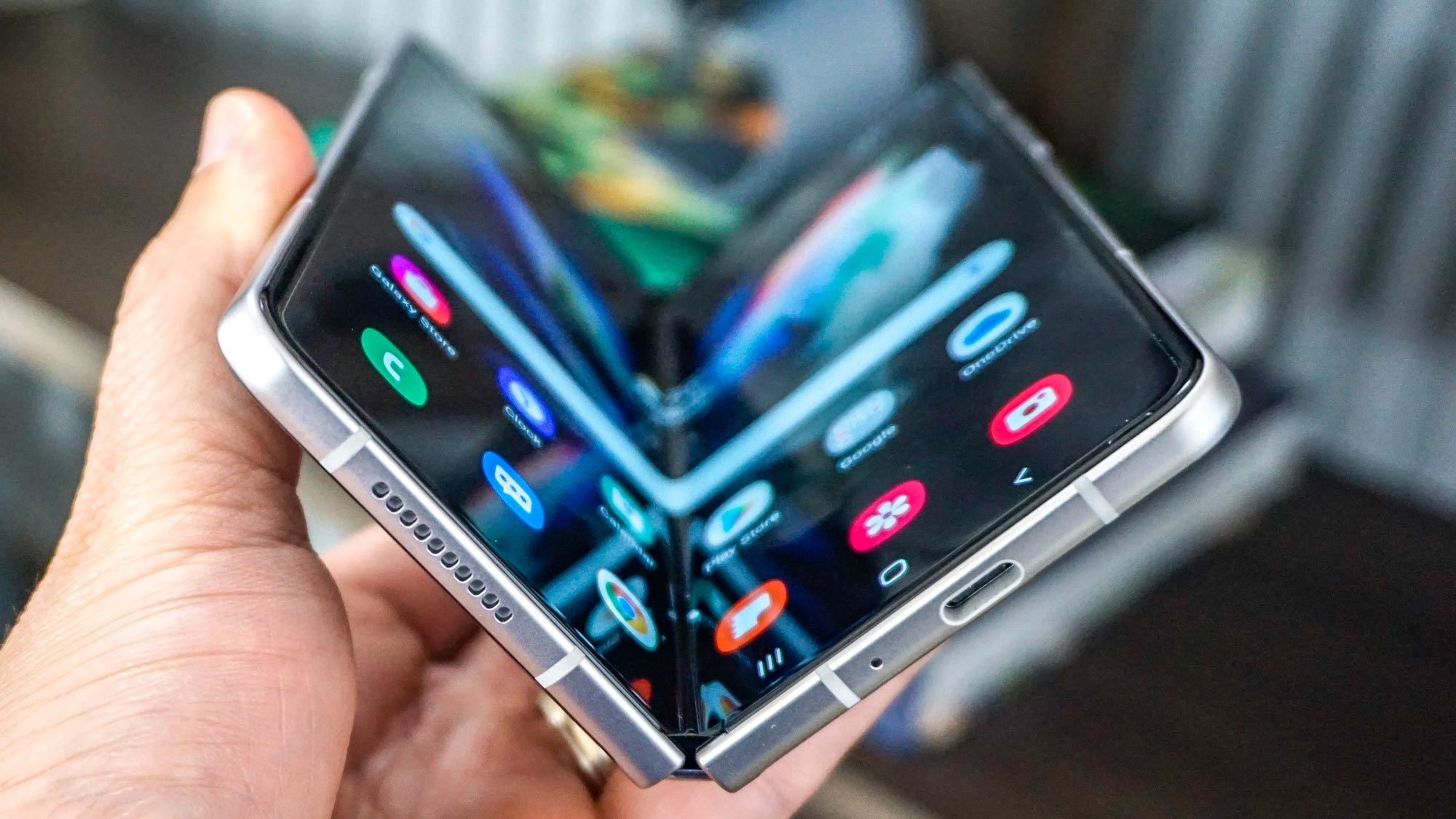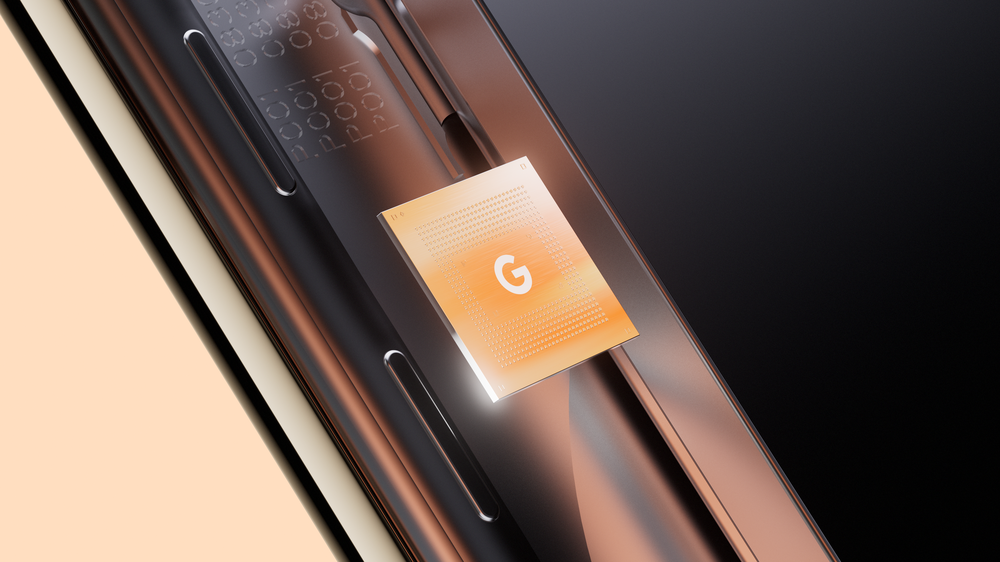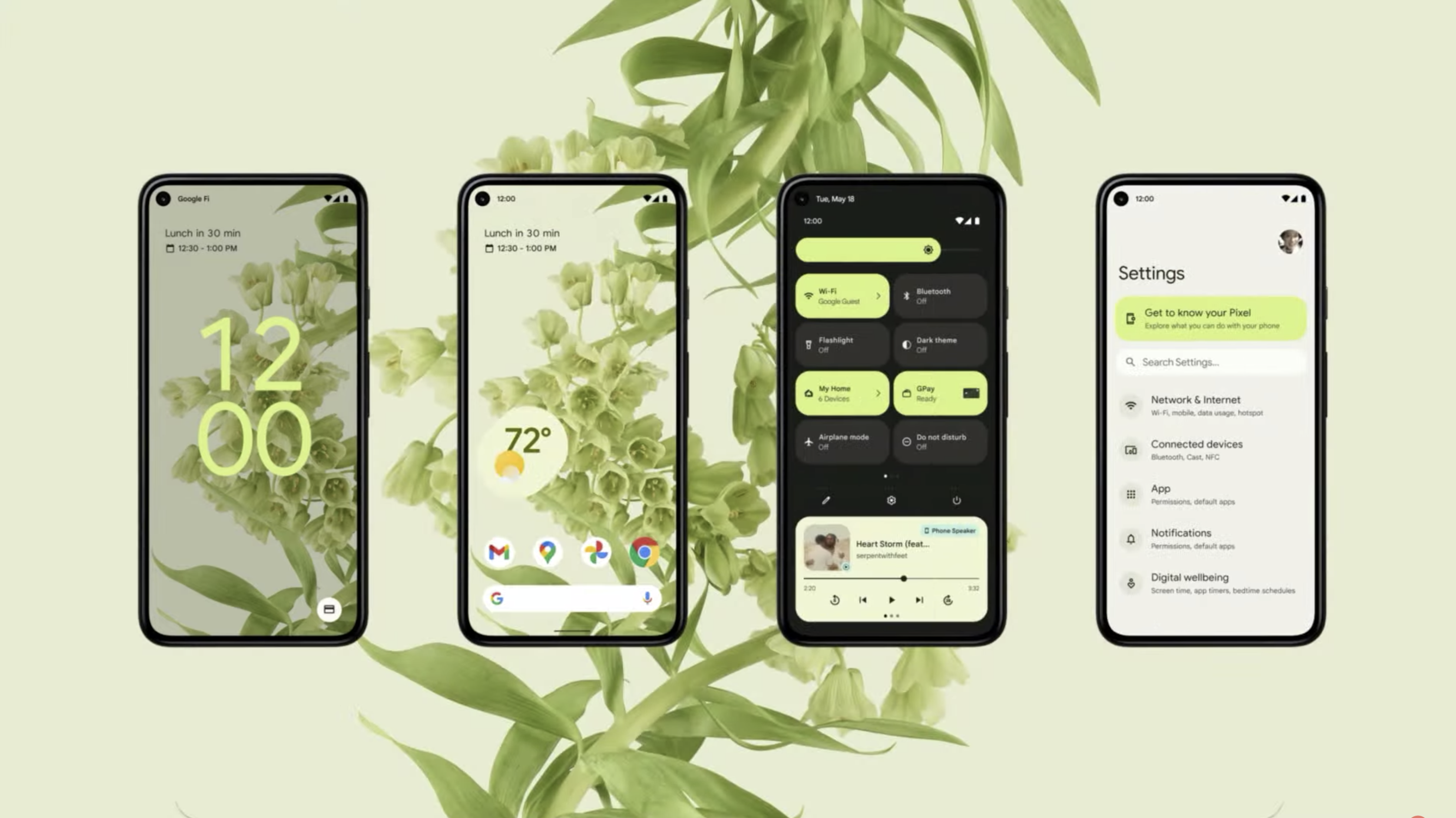Samsung Galaxy Z Fold 3 is great — but I’m holding out for Google Pixel Fold
Here's how the Google Pixel Fold could beat the Samsung Galaxy Z Fold 3

I’ve been using the Samsung Galaxy Z Fold 3 for several weeks, and other than its dumb name, I’m rather impressed by it. Having a compact tablet that you can easily slip into or pocket or purse is great. And the overall feel of the hardware is top notch, too.
So it’s no surprise that the Galaxy Z Fold 3 is one of the best foldable phones you can get right now. But would I buy one of my own? No. That's because I'm waiting to see if the Google Pixel Fold makes the jump from rumor to reality.
- Google Pixel 6 release date, price, Tensor chip, specs and news
- How to watch the Google Pixel Fall Launch event
- Plus: Google Pixel 6 leaked promo videos show off major new software features
For some time now Google has been tipped to be working on a foldable phone. And those rumors have stepped up recently, suggesting a Pixel Fold could be revealed at the upcoming Google Pixel Fall launch event on October 19.
Now, I’d take that with a pinch of salt. But the Google Pixel 6 has been well and truly leaked, with the search giant pretty much spilling the beans itself, meaning a surprise product at the next Google showcase could happen. And a new advert from Google would suggest there's some foldable news on the horizon.
Even if it’s not revealed, there’s a strong chance that Google is indeed working on a Pixel Fold. And it’s got me thinking what it needs to deliver to beat the Galaxy Z Fold 3 and make folding phones truly compelling.
Google Pixel Fold: Slimmer and sleeker?

First off, let me address my biggest gripe with the Galaxy Z Fold 3; it’s too frickin’ big. Obviously, making a device with two screens, one of which is tablet-sized, is no mean feat and requires some handset girth. But oh boy, do you feel the Galaxy Z Fold 3 in your pocket. So much so that I tend to put it in a backpack rather than slip it into the pocket of my jeans or coat; that’s hardly handy.
So the Pixel Fold could offer a slimmer overall package. Google hasn’t got a reputation for making super-slim phones — in fact, Samsung tends to be the one for that given how svelte the Galaxy S21 is — but the company is no stranger to highly-engineered devices; the Pixelbook, a high-end Chromebook, is one such example.
And Google has proven it can do more with less, given the Pixel 5 only has two rear cameras but is still one of the best camera phones around. So the Pixel Fold could draw on that expertise and perhaps come with one rear camera that cuts down on the need for a lot of internal hardware and relies on Google’s computational photography chops to deliver impressive photos.
Give the Pixel 6 is coming with Google’s own Tensor chip, there’s a chance it could also use that slice of silicon in the Pixel Fold. Having a custom chip would give Google greater control over the internal hardware layout of a folding phone, such as handling cooling, meaning it can get smarter with packaging and make a slimmer folding device.
The Tensor chip advantage

Speaking of Tensor, it could be the use of a custom chip that would give the Pixel Fold a competitive edge over other foldable phones.
The Galaxy Z Fold 3 makes use of Qualcomm’s Snapdragon 888 chipset, a high-end chip found in many flagship Android phones. As such, Samsung’s foldable phone will easily chew through benchmarks.
However, in real-world use, I found that the Galaxy Z Fold 3 can occasionally feel less than screaming-quick. Maybe it’s just my perception for using the seriously optimized iPhone 12 or the very fast Oppo Find X3 Pro, but when multitasking or trying to bounce between using apps on the Galaxy Z Fold 3’s cover screen and its tablet display, the phone can occasionally feel a step behind my actions. It’s not a huge deal, but it lessens the experience I’d hope to get from a folding phone.
This is where the Tensor could be an ace in the hole for Pixel Fold, or indeed other future Google phones. While we don't know the official capabilities of the Tensor chip, Google has already talked up its potential to help a phone react better to how the device is used.
For example, if I were to open the Pixel Fold at 8 a.m. on a Monday, the phone would open the Amazon Kindle app having learnt that I tend to read digital books and magazines when commuting. Equally, Tensor could better learn how I type on the touchscreen display, so when I’m tapping out an email at speed, the Pixel Fold’s Tensor chip smarts could more intuitively correct my rampant typos.
In essence, these smarts could be used to make it feel like a foldable phone that's working for me rather than needing me to adapt to its various functions; I’ve never found it easy to manage split screen apps on Samsung phones, for example.
Pixel Fold: Slicker software

And that leads me onto the Pixel Fold’s potential software. Like previous Pixel phones, it would be safe to assume the Pixel Fold would make use of Android 12 with the Pixel Launcher on top. That means a clean Android experience with a few extras on top that add to the experience rather than bloat Google’s mobile operating system.
I’d expect any software for the Pixel Fold to be perfectly optimized by Google, with apps like Gmail, Chrome, Docs and so on rebuild from the ground up to neatly work across both a compact tablet display as well as a standard phone screen. Whereas the likes of Samsung need to rework their standard apps and rely on third-party developer support to get apps to work on foldable displays; in my experience with the Galaxy Z Fold 3, the results thus far have been varied.
Google has already gone some way to enable developers to more easily design apps for foldables, and it is a key parter of Samsung for its foldables. But I reckon if Google does indeed make a foldable phone, it's development kit, optimizations and app tweaks will become more prolific and embedded into the core of Android.
I’ve always found Pixel handsets to offer the very best Android phone experience around, so I would expect the Pixel Fold to do the same for folding phones. And the idea of super optimized apps on a folding phone really boost the appeal of such devices, especially if well-integrated gesture control is used.
Of course, all this could end up being wishful thinking if it turns out that Google isn’t working on a foldable phone; after all, there have been a lot of rumors around a Pixel Watch and that has yet to materialize.
Nevertheless, I’m hopeful that as more foldable phones arrive, Google will make them as intuitive and effective as possible. That'll make them compelling phones for more people rather than expensive niche handsets.
- More: Google Pixel 6 vs Pixel 5a: Which Pixel is best for you?
Sign up to get the BEST of Tom's Guide direct to your inbox.
Get instant access to breaking news, the hottest reviews, great deals and helpful tips.
Roland Moore-Colyer a Managing Editor at Tom’s Guide with a focus on news, features and opinion articles. He often writes about gaming, phones, laptops and other bits of hardware; he’s also got an interest in cars. When not at his desk Roland can be found wandering around London, often with a look of curiosity on his face.

